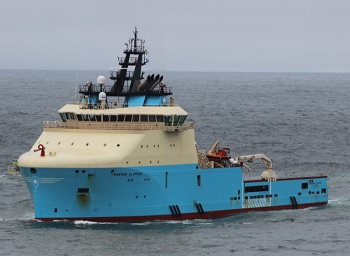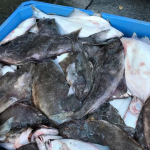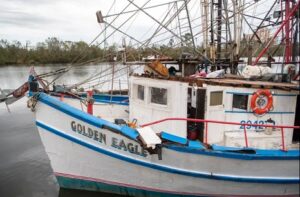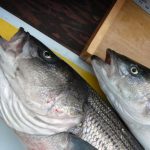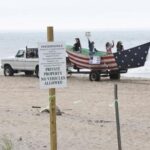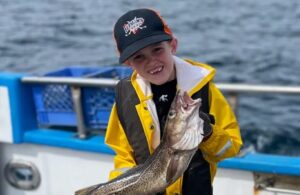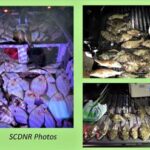Tag Archives: Atlantic Groundfish Council
Suggested areas for offshore wind around N.S. swell in size
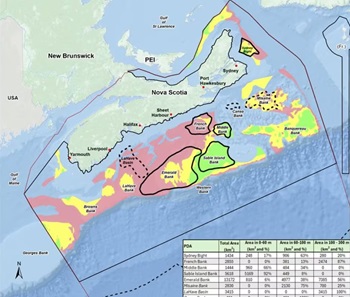 Offshore areas around Nova Scotia recommended for wind energy projects have ballooned in size in the latest version of a report for government, troubling some in the fishing industry who are bracing for disruptions. The draft final report comes from the regional assessment committee, which was tasked by the province and Ottawa two years ago to investigate the potential impacts of offshore wind development on Nova Scotia. It describes eight potential development areas that cover a total of 31,200 square kilometres. The areas stretch from the tip of George’s Bank southwest of Nova Scotia, up the Atlantic coastline and around Cape Breton Island. more, >>CLICK TO READ<< 08:14
Offshore areas around Nova Scotia recommended for wind energy projects have ballooned in size in the latest version of a report for government, troubling some in the fishing industry who are bracing for disruptions. The draft final report comes from the regional assessment committee, which was tasked by the province and Ottawa two years ago to investigate the potential impacts of offshore wind development on Nova Scotia. It describes eight potential development areas that cover a total of 31,200 square kilometres. The areas stretch from the tip of George’s Bank southwest of Nova Scotia, up the Atlantic coastline and around Cape Breton Island. more, >>CLICK TO READ<< 08:14
Fishing group, N.S. fisherman happy with Canada-France halibut deal
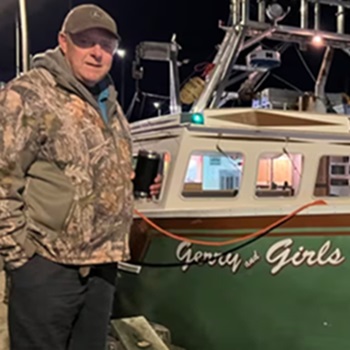 Canada and France have reached a deal to try to end a long-simmering dispute over halibut fishing on Canada’s Atlantic coast. In exchange for a three per cent share of the Canadian quota, French fishing vessels will fish outside Canadian waters and agree to have their catch monitored. According to Shelburne fisherman Gary Dedrick, French fishermen have been harvesting in Canadian waters outside the designated French fishing zone surrounding St-Pierre-Miquelon, France’s eight small islands off Newfoundland’s southern coast, and not limiting their catches. “They will be allowed to fish Atlantic halibut in their own territory and also outside 200 miles, but they won’t be able to fish in Canadian waters,” said Lapointe, who is looking to federal authorities to increase monitoring and catch reporting now that there’s a formal agreement. more, >>CLICK TO READ<< 14: 19
Canada and France have reached a deal to try to end a long-simmering dispute over halibut fishing on Canada’s Atlantic coast. In exchange for a three per cent share of the Canadian quota, French fishing vessels will fish outside Canadian waters and agree to have their catch monitored. According to Shelburne fisherman Gary Dedrick, French fishermen have been harvesting in Canadian waters outside the designated French fishing zone surrounding St-Pierre-Miquelon, France’s eight small islands off Newfoundland’s southern coast, and not limiting their catches. “They will be allowed to fish Atlantic halibut in their own territory and also outside 200 miles, but they won’t be able to fish in Canadian waters,” said Lapointe, who is looking to federal authorities to increase monitoring and catch reporting now that there’s a formal agreement. more, >>CLICK TO READ<< 14: 19
Ottawa shirked own guidelines when it reopened commercial cod fishery, say scientists
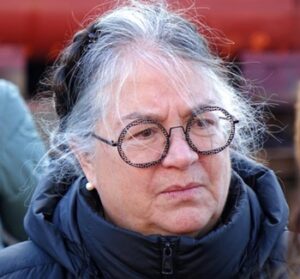 Fisheries scientists say the federal government ignored its own guidelines when it hiked cod quotas off the northern and eastern coasts of Newfoundland and Labrador last June. The scientists, some of whom worked for Fisheries and Oceans Canada for decades, say they’re struggling to understand the decision to reopen the commercial Northern cod fishery. “I was baffled when I heard the news”, said Noel Cadigan, a long-time DFO scientist who now works at Memorial University’s Marine Institute. “And that hasn’t changed.” A May 6 briefing note obtained by CBC/Radio-Canada shows DFO recommended against reopening the fishery to offshore vessels and increasing quotas. But it also assured Federal Fisheries Minister Diane Lebouthillier that lifting the moratorium and hiking the total allowable catch, as all six Liberal MPs from Newfoundland and Labrador were pushing her to do, would nevertheless align with the Fisheries Act and its rules on stock management. more, >>CLICK TO READ<< 11:15
Fisheries scientists say the federal government ignored its own guidelines when it hiked cod quotas off the northern and eastern coasts of Newfoundland and Labrador last June. The scientists, some of whom worked for Fisheries and Oceans Canada for decades, say they’re struggling to understand the decision to reopen the commercial Northern cod fishery. “I was baffled when I heard the news”, said Noel Cadigan, a long-time DFO scientist who now works at Memorial University’s Marine Institute. “And that hasn’t changed.” A May 6 briefing note obtained by CBC/Radio-Canada shows DFO recommended against reopening the fishery to offshore vessels and increasing quotas. But it also assured Federal Fisheries Minister Diane Lebouthillier that lifting the moratorium and hiking the total allowable catch, as all six Liberal MPs from Newfoundland and Labrador were pushing her to do, would nevertheless align with the Fisheries Act and its rules on stock management. more, >>CLICK TO READ<< 11:15
Waiting for details on Gulf of St Lawrence redfish
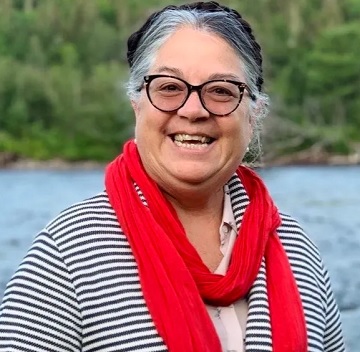 Canada’s Minister of Fisheries and Oceans Diane Lebouthillier last month announced a long-awaited decision on the reopening of the commercial redfish fishery in the Gulf of St. Lawrence, known as commercial redfish fishery. Now the Atlantic Groundfish Council and its members are awaiting more information on the decision to better understand the details. ‘During the consultation process, we were pleased to see various stakeholders sharing the view that the significance of historical shares and the investments by existing quota holders should be respected and are an important part of a sustainable and successful Canadian redfish fishery,’ said Sylvie Lapointe, President of the Atlantic Groundfish Council. more, >>click to read<< 07:08
Canada’s Minister of Fisheries and Oceans Diane Lebouthillier last month announced a long-awaited decision on the reopening of the commercial redfish fishery in the Gulf of St. Lawrence, known as commercial redfish fishery. Now the Atlantic Groundfish Council and its members are awaiting more information on the decision to better understand the details. ‘During the consultation process, we were pleased to see various stakeholders sharing the view that the significance of historical shares and the investments by existing quota holders should be respected and are an important part of a sustainable and successful Canadian redfish fishery,’ said Sylvie Lapointe, President of the Atlantic Groundfish Council. more, >>click to read<< 07:08
Clearwater Seafoods loses redfish quota as other Indigenous harvesters gain
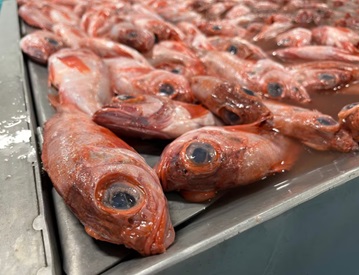 Indigenous-owned Clearwater Seafoods is on the losing side of the redfish quota cut handed to the Atlantic Canadian offshore fleet by the federal government last week. The Department of Fisheries and Oceans reduced the share of Gulf of St. Lawrence redfish quota held by Clearwater and other offshore licence holders by 20 per cent, in part to encourage Indigenous participation in the fishery. Commercial harvesting will restart this year, marking an epic comeback from a collapse 30 years ago to a population now estimated at 2.2-million metric tonnes. Offshore companies spent tens of millions of dollars gearing up for the return only to lose a big piece of their quota on the eve of reopening. photos, more, <<click to read<< 14:11
Indigenous-owned Clearwater Seafoods is on the losing side of the redfish quota cut handed to the Atlantic Canadian offshore fleet by the federal government last week. The Department of Fisheries and Oceans reduced the share of Gulf of St. Lawrence redfish quota held by Clearwater and other offshore licence holders by 20 per cent, in part to encourage Indigenous participation in the fishery. Commercial harvesting will restart this year, marking an epic comeback from a collapse 30 years ago to a population now estimated at 2.2-million metric tonnes. Offshore companies spent tens of millions of dollars gearing up for the return only to lose a big piece of their quota on the eve of reopening. photos, more, <<click to read<< 14:11
Atlantic Groundfish Council Pleased With Redfish Allocation
 The shrimp biomass is declining significantly, and FFAW Secretary-Treasurer Jason Spingle fully expected DFO to give shrimpers access to a meaningful allocation of redfish. The year-round harvesters are generally pleased with the amount of redfish allocated to them. For the first time in decades, Ottawa is opening the redfish fishery in the Gulf of St. Lawrence. The Atlantic Groundfish Council says their sector lost 20 per cent of their historical share in the decision. Generally though, they praise DFO for resisting more drastic change in the total allowable catch. more, >>click to read<< 10:01
The shrimp biomass is declining significantly, and FFAW Secretary-Treasurer Jason Spingle fully expected DFO to give shrimpers access to a meaningful allocation of redfish. The year-round harvesters are generally pleased with the amount of redfish allocated to them. For the first time in decades, Ottawa is opening the redfish fishery in the Gulf of St. Lawrence. The Atlantic Groundfish Council says their sector lost 20 per cent of their historical share in the decision. Generally though, they praise DFO for resisting more drastic change in the total allowable catch. more, >>click to read<< 10:01
Group for Atlantic offshore redfish fleet says details scarce on fishery reopening
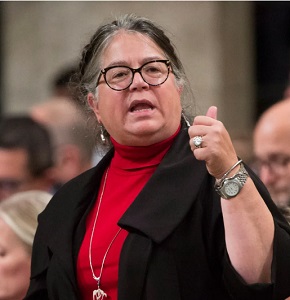 The organization representing Atlantic Canada’s offshore redfish fleet says it needs more details to better understand the ramifications of Ottawa’s lifting of a decades-long moratorium on the fishery. Fisheries Minister Diane Lebouthillier announced Friday that the moratorium put in place in 1995 would end this year, with an initial overall catch quota of at least 25,000 tonnes for the Gulf of St. Lawrence. Sylvie Lapointe, president of the Atlantic Groundfish Council, says the offshore fleet is facing a steep cut in its share of the fishery after being assigned 59 per cent of the 2024 quota. how the fishery will be managed. more, >>click to read<< 14:12
The organization representing Atlantic Canada’s offshore redfish fleet says it needs more details to better understand the ramifications of Ottawa’s lifting of a decades-long moratorium on the fishery. Fisheries Minister Diane Lebouthillier announced Friday that the moratorium put in place in 1995 would end this year, with an initial overall catch quota of at least 25,000 tonnes for the Gulf of St. Lawrence. Sylvie Lapointe, president of the Atlantic Groundfish Council, says the offshore fleet is facing a steep cut in its share of the fishery after being assigned 59 per cent of the 2024 quota. how the fishery will be managed. more, >>click to read<< 14:12
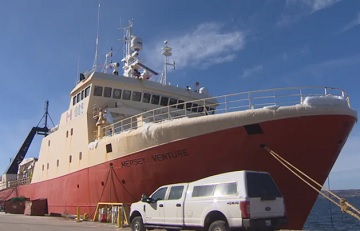
Ottawa signs new deal to charter fishing boats for science surveys
The agreement with the Atlantic Groundfish Council, which represents the region’s largest seafood companies, allows DFO to charter industry vessels for two to six weeks a year for fisheries or ecosystem surveys in Atlantic Canada. “We’ve been distressed in the fishing industry for two or three years now because DFO research vessel surveys were not getting done,’ said Bruce Chapman, president of the Atlantic Groundfish Council. DFO scientists returned last week from the first mission under the new charter agreement. It was a two-week survey on Georges Bank aboard the Mersey Venture, a 58-metre factory freezer trawler owned by Nova Scotia seafood company Mersey Seafoods. The Mersey Venture gathered data used by both Canada and the United States to jointly manage trans-boundary haddock, cod and yellowtail flounder stocks on the shared fishing grounds. Photos, >click to read< 17:35
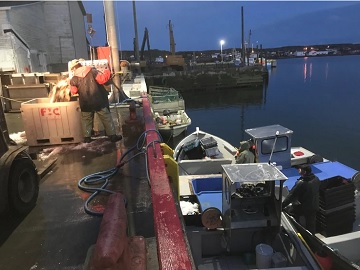
Northern cod 30 years after the moratorium: Confederation’s greatest shame
As the 30th anniversary of the northern cod moratorium looms, DFO cannot say with certainty whether the at-sea fall survey will be completed this year, the small-scale inshore fishery limps on with an average price of 64¢/lb, and the number of active enterprises has fallen to 1,259 — a shadow of the fishery’s glory days when the stock supported 30,000-40,000 workers. On the plus side, scientists with Fisheries and Oceans finally acknowledge that seals “undoubtedly” have an impact on cod — just not as huge as the lack of caplin (which seals also eat by the millions of pounds, but one DFO baby step at a time). >click to read< 08:02
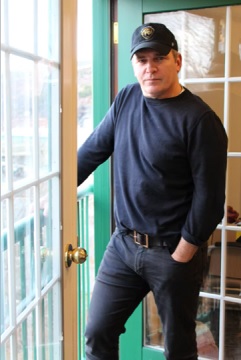
DFO responds to Ryan Cleary’s allegations of a ‘backroom’ plan
The interim executive director of Seaward Enterprises Association of Newfoundland and Labrador accused the Department of Fisheries and Oceans of orchestrating a “backroom” plan to rebuild the cod stock off southern Newfoundland and exclude the voice of inshore harvesters. According to Cleary, DFO has assembled a working group, made up of DFO and FFAW union officials, fish processors, indigenous interests and the offshore, sector to develop a rebuilding plan for cod in the 3Ps fishing zone. An official for DFO, however, says when DFO established the working group they invited members of the 3Ps Groundfish Advisory Committee to participate. >click to read< 13:32
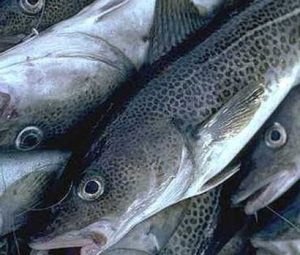
SEA-NL condemns DFO’s backroom plans for rebuilding south coast cod stock
Seaward Enterprises Association of Newfoundland and Labrador (SEA-NL) accuses Fisheries and Oceans of orchestrating a “backroom” plan to rebuild the cod stock off southern Newfoundland and exclude the voice of inshore harvesters. “Any rebuilding attempt that does not include the input of the inshore fleet is doomed,” says Ryan Cleary, SEA-NL’s interim Executive Director. “When DFO leaves inshore harvesters out of the equation they get the math and science wrong, and the department is doing it again.” >click to read< 10:37
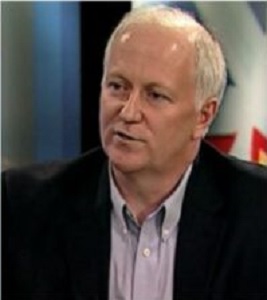
Access: Fight over emerging redfish fishery amps up as offshore sector bites back
In a highly managed media event staged at Memorial University’s Signal Hill campus, officials from the Atlantic Groundfish Council, which represents more than 100 offshore groundfish licence holders in Atlantic Canada, and Ocean Choice International, fought back against what they say is an attack that threatens the livelihood of people linked to the offshore sector. “It’s time this attack stops. It’s negative. It’s divisive and it’s not good for the province,” said Martin Sullivan, CEO and co-owner of Ocean Choice International,,, >click to read< 07:51
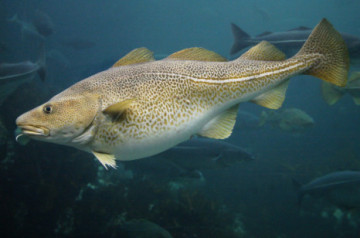
Fishing Industry reps withdraw from Canada-France meetings after DFO recommends 3Ps cod moratorium
Canada and France began negotiations today, March 23, to decide who can fish for what on the south coast of Newfoundland but representatives from the fishing industry won’t be there. Atlantic Groundfish Council, Fish Food and Allied Workers, and Association of Seafood Producers have all announced they will withdraw from the bilateral meetings to determine quotas in protest over Canada’s intent to place a moratorium on cod in the 3Ps zone. The decision to withdraw comes after the industry learned late Friday,,, >click to read< 17:56
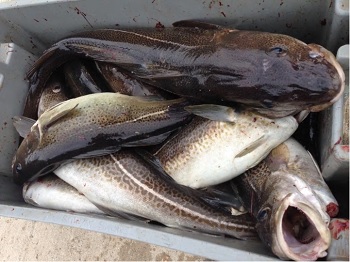
DFO says south coast cod numbers down – ‘This new assessment model is overly pessimistic,’ Atlantic Groundfish Council
Cod stocks are at critical levels off the south coast of Newfoundland and Labrador, according to the new model used by the Department of Fisheries and Ocean,, Even if there was no fishing permitted in the area this coming season, the stock is predicted to decline further. DFO says the natural mortality of the fish caused by predators and changes to the environment is around three times that of fishing mortality.,, But at least two organizations are slamming the new way DFO compiles its data. >click to read< 18:54
Cod stock in Area 3Ps off southern Newfoundland in ‘critical zone’ until at least 2022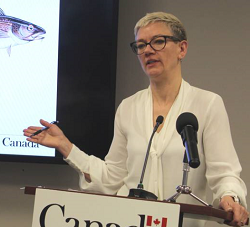 – New model used to determine cod biomass questioned by industry, union. There are fewer cod in the 3Ps area off southern Newfoundland than ever recorded, according to new data released Wednesday by the Department of Fisheries and Oceans (DFO). >click to read< 21:45
– New model used to determine cod biomass questioned by industry, union. There are fewer cod in the 3Ps area off southern Newfoundland than ever recorded, according to new data released Wednesday by the Department of Fisheries and Oceans (DFO). >click to read< 21:45
Researchers tracking fish to learn more about where they migrate and spawn
Northern cod are about to experience a much higher level of surveillance. The iconic fish — 1,260 of them — are having small transmitters implanted into their bellies. As the cod swim about, their transmitters will send information to 75 acoustic receivers moored to the ocean floor in 13 areas along the eastern continental shelf and in three areas closer to shore in cod fishery area 2J3KL. >click to read< 19:10






